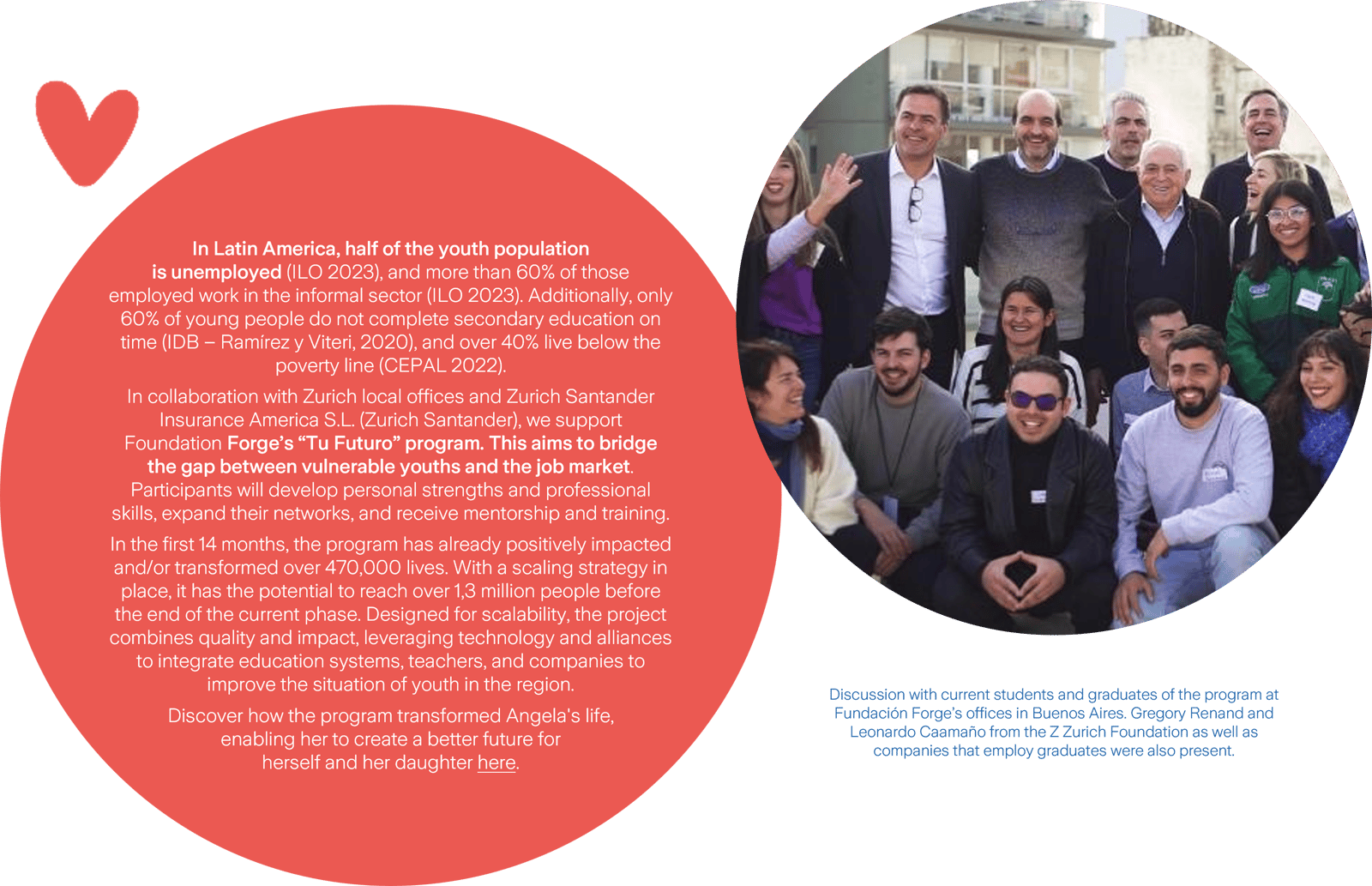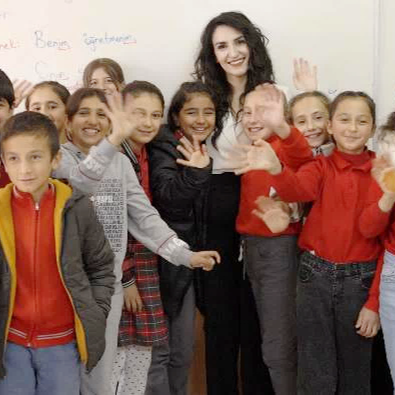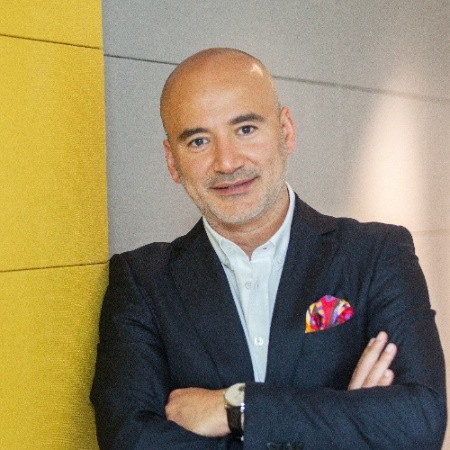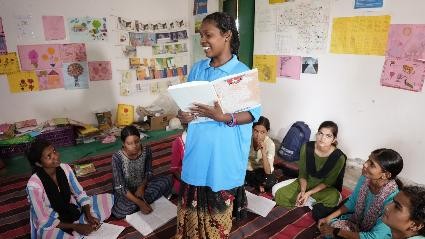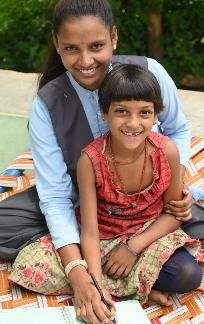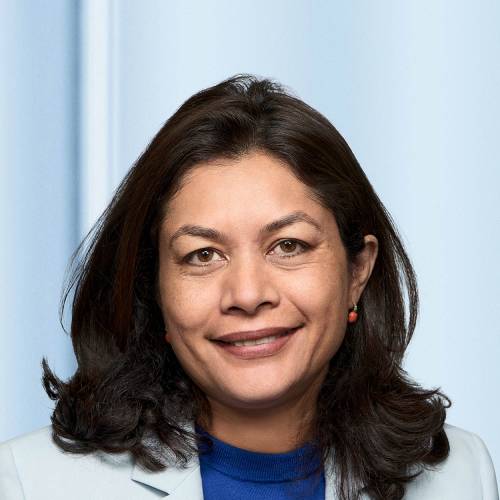Impact report 2024 | 2024 progress and numbers | Meeting communities where they are | Harnessing global strength to change society
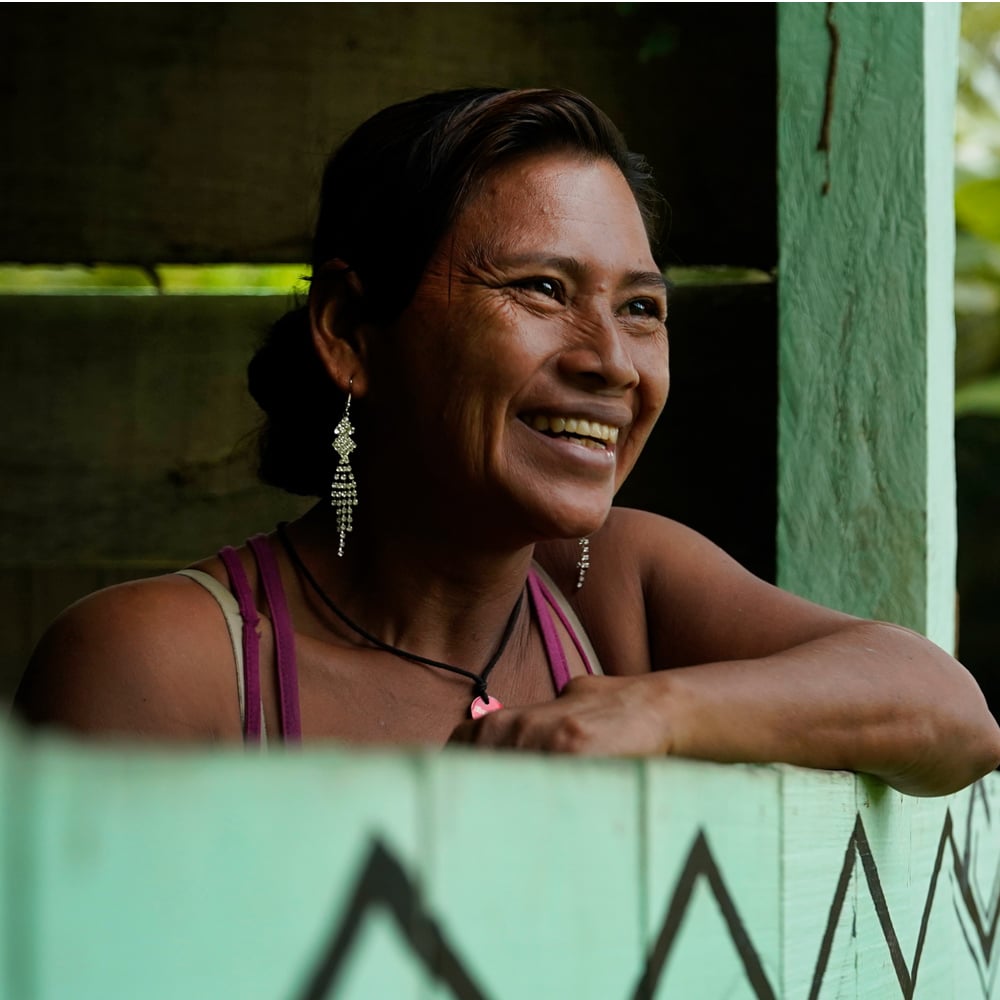
Meeting communities where they are
Elvi Rufino fought wildfires to protect her community. Today, she’s fighting for climate resilience and a better future. Photo credit: Freddy Barragan
In 2024, we redesigned a major part of our portfolio to better align with our strategic goals and deepen our impact – both in scale and depth. Some key highlights of this transformation include the approval and renewal of 11 grants in 2024, with an additional 12 grants in the second half of 2023 that were implemented in 2024. Through the year, we also conducted a detailed analysis of all our active grants, ensuring they have potential to scale up impact.
Redesigning our portfolio of activities to scale up impact
Embracing adaptation in the face of climate change in 24 countries across the globe
In 2024, the Zurich Climate Resilience Alliance (the Alliance) underwent a significant evolution. After ten years of focusing on flood resilience, the Alliance expanded its scope to address a broader range of climate-related challenges, including heatwaves, wildfires, and storms. This expansion is driven by the increasing frequency and intensity of these hazards, underscoring the critical need to enhance resilience in both rural and urban communities.
While 2035 serves as our guiding vision, we are targeting specific system changes over both the short and long term, in line with our acceleration strategy cycle from 2024 to 2027.
The Alliance is dedicated to community-level work, using the Climate Resilience Measurement for Communities approach. This method enables members to assess the strengths and weaknesses of a community's resilience, design tailored interventions and implement them collaboratively to ensure community ownership. Our efforts are supported by research and knowledge generation aimed at influencing local systems, thereby improving resilience on a broader scale. On a global level, we focus on common systemic issues, applying international global advocacy to support local change.
Our Urban Climate Resilience Programs (UCRP) are designed with scalability in mind, targeting growth through partnerships with both public and private sectors. Adopting the same community-level approach as the Alliance, UCRP leverages our close collaboration with Zurich teams worldwide. Our partner organizations have also successfully secured new funding sources to extend their work in countries such as Colombia, the UK, and Spain.
This collective effort underscores the significant impact we can achieve when we share a common agenda and vision, paving the way for more collaborative efforts to influence change on a global scale.

Over the past decade, Alliance members have made significant strides in addressing the climate crisis, showcasing the power of collaboration and innovation. However, our work is far from over. The urgency of the climate crisis requires that we accelerate our collective efforts, leveraging the lessons learned and the collaborations forged to drive even greater impact. The next decade is crucial, and I am confident that together, we can achieve the ambitious goals necessary to secure a sustainable future for generations to come.

Redesigning our portfolio of activities to meet the needs of a rapidly changing world
Scaling up efforts to promote young people’s mental health and wellbeing with UNICEF
We have renewed our global partnership with UNICEF, Thriving Together, to scale our efforts in prioritizing and promoting young people's mental health and wellbeing. Our ambitious goal is to impact at least 11 million people by the end of 2027.
A system-change approach – Adopting a system-change approach at the government, community, and individual level, the partnership aims to enhance countries' abilities to address youth mental health and wellbeing, with a strong focus on prevention. Central to this initiative are program tools that have been collaboratively developed and field-tested, offering both in-person and digital interventions. These tools provide adolescents and caregivers with valuable information, skills, and strategies to care for their own and each other's mental wellbeing.
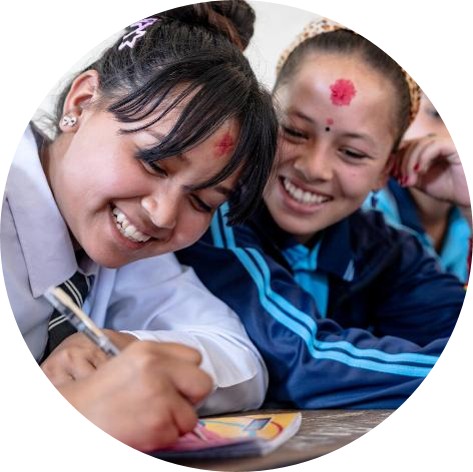 Adolescent girls participating in school-based mental health sessions being conducted at a school in Surkhet District in western Nepal. These classes are part of a larger initiative to promote the mental well-being of young people. Credit: © UNICEF/UNI646487/Upadhayay
Adolescent girls participating in school-based mental health sessions being conducted at a school in Surkhet District in western Nepal. These classes are part of a larger initiative to promote the mental well-being of young people. Credit: © UNICEF/UNI646487/Upadhayay
Phase 1: Tailored responses (August 2021 – August 2024) – In the first phase, our strategic partnership has supported national authorities in tailoring responses to their specific needs in countries such as Ecuador, Mexico, Colombia, the Maldives, Nepal, Vietnam, and Indonesia. We have used various delivery mechanisms, including school systems, digital interventions, and community-based initiatives, to meet these needs effectively.
Between 2022 and 2024, these intervention approaches and tools were tested in a global pilot. The results clearly demonstrated the effectiveness of these evidence-based strategies, tailored to fit different contexts. Across the varied settings and delivery methods, we observed consistent improvements in young people's social and emotional skills. The key insights from this testing phase will guide the scale-up and expanded support for adolescents in both Phase 1 countries and also new countries of the partnership.
What is Thriving Together all about? Click here to learn more about it.
Phase 2: Expanding impact (August 2024 to August 2027) – In the second phase, running until 2027, we aim to support young people's mental health and wellbeing by:
- Establishing protective policies and scaling advocacy strategies
- Fostering nurturing school and community environments that promote mental wellbeing
- Ensuring the presence of connected and supportive caregivers
- Cultivating resilience in adolescents
- Making thematic tools and resources available globally to practitioners
These elements are the foundations of a healthier future for our youth and generations to come.
Program model and global infrastructure – Our program model with UNICEF integrates a package of global tools, strategic interventions at the country level, and a vision for impact at global stage. Program tools provide the practical resources necessary for implementation, while strategic interventions and advocacy strategies guide the delivery approach and specific actions at country level to transform systems in a sustainable way.
Expanding impact – To meet growing global demand, we have expanded our partnership with UNICEF from seven to 15 program countries, including Argentina, Bangladesh, Bhutan, Colombia, Ecuador, Egypt, India, Indonesia, Jordan, Malaysia, the Maldives, Mexico, Nepal, Pakistan, and Vietnam. We are scaling the partner-ship's impact by strengthening policy actions and programmatic interventions across digital, school, and community platforms to reach young people everywhere, including vulnerable groups like migrant and refugee communities.
Through these comprehensive and concerted efforts, we are committed to driving sustainable change and making a significant positive impact on the mental health and wellbeing of young people worldwide.
Young people face profound challenges, such as the pressure to meet unattainable standards in the increasingly competitive job market. We are not just a generation, we are individuals aware of the systemic problems surrounding us. We face complex challenges and need to be heard instead of ridiculed. It’s time we break that stereotype and accept that our sensitivity is not a weakness but a response to a world that urgently needs transformation.
Empathy and understanding are powerful tools to build bridges between generations and move toward a future where we all can thrive.

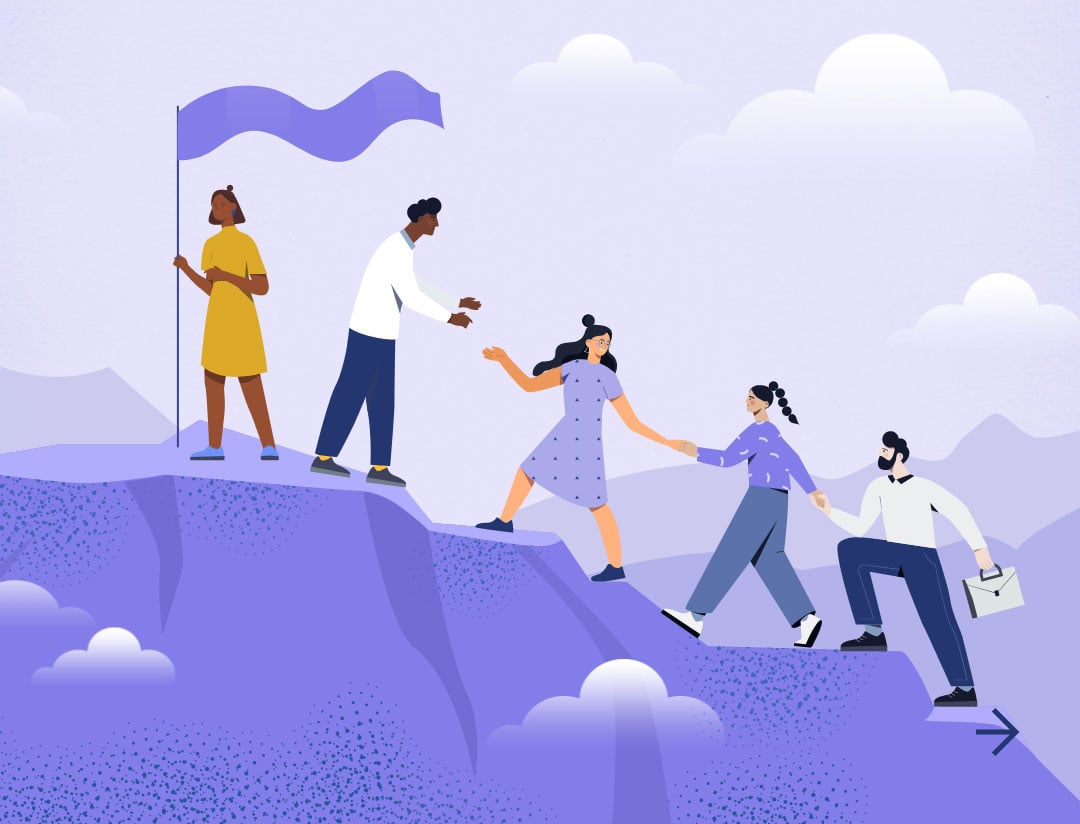
From recovery to resilience
In the aftermath of a disaster, survivors who have lost loved ones, livelihoods, and homes urgently need Mental Health and Psychosocial Support (MHPSS). These invisible needs, which are crucial to recovery and can have long-term consequences, are unfortunately often overlooked.
Through our "Responding to Crisis" and "Improving Mental Wellbeing" pillars, we are addressing this critical gap. By providing targeted support and resources, we ensure that individuals and communities can better cope with acute trauma, improve their wellbeing, and with time, develop the resilience needed to rebuild their lives.
While we respond to crises as they occur, our prevention and promotion mental wellbeing initiatives are also contributing to increased coping capacities during emergencies.
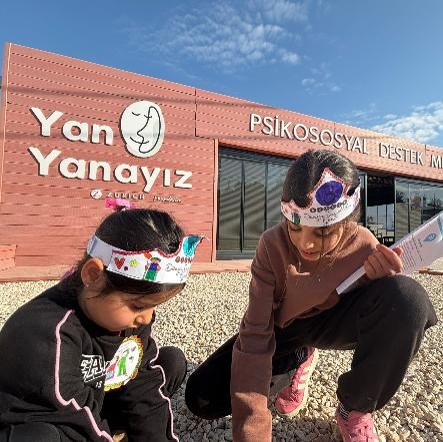 International Day of Persons with Disabilities event with children at Side by Side Psychosocial Support Center in Antakya. Photo credit: Hatice Nalan Süseli
International Day of Persons with Disabilities event with children at Side by Side Psychosocial Support Center in Antakya. Photo credit: Hatice Nalan SüseliBuilding on this enables a continuum of support that makes it possible to deliver customized assistance tailored to the unique needs of each individual and community.
In Türkiye, our collaboration with Needs Map responds to the immediate recovery needs in the aftermath of the February 2023 earthquake, while initiating sustainable system change for youth mental wellbeing in Türkiye. The program aims to initiate a new country-wide culture to promote youth mental wellbeing, contribute to immediate recovery, activate the resilience power of Turkish youth and prepare them for possible future crises through:
- Community centers in earthquake-affected areas that provide mental health and wellbeing support for adults, youth, and children
- An online mental health portal with mental wellbeing resources and online counselling sessions with accredited psychologists
- Resource development with videos, infographics, and live sessions on psychological support and self-development, vetted by a scientific advisory board
- Social media campaign to increase psychological resilience and preparedness across Türkiye
In 2024 only, more than 170,000 people have been positively impacted.
Note: Collaboration between the Z Zurich Foundation, Zurich Sigorta A.Ş. (Zurich Türkiye) and İhtiyaç Haritası (Needs Map)
In the fall of 2024, during the most devastating floods in Spain’s recent history, we mobilized efforts with Zurich Spain’s local team, working closely with local charities and humanitarian organizations to assist individuals impacted. Our joint efforts helped provide immediate relief through the Spanish Red Cross, as well as a focus on delivering mental health support and addressing psychological trauma, especially for children from highly vulnerable backgrounds with Betania.
Every year, the Philippines is struck by over 20 typhoons and significant storms, causing devastation that extends far beyond the physical damage. In November 2024, Super Typhoon Man-yi displaced over 92,000 people, including thousands of children. These disasters leave behind invisible scars: fear, anxiety, and trauma, especially among children. With the expertise of Plan International, our partner operating in the country, we explored what it would take to deploy Mental Health and Psychosocial Support (MHPSS) interventions.
Guided by the insights from local teams on the ground, we decided to make a substantial donation to enable the integration of mental health support into their initial response plans. By addressing mental health and psychological needs, we can help the most vulnerable in crises to heal and rebuild their inner resilience.
The outcomes of our initiatives in multiple countries continue to inform our mental wellbeing and crisis response strategies. By leveraging these insights and strengthening our partnerships we can sustain and scale our efforts, ensuring that individuals and communities receive the support for immediate needs while also strengthening the ability to withstand and build resilience to future crises.
Increasing resilience to enhance preparedness
In Vietnam, our Thriving Together partnership with UNICEF to improve youth mental wellbeing is implemented in close cooperation with the government Ministry of Education and Training. The initiative focuses on developing evidence-based tools and mental health approaches that are integrated into existing education systems.
In a recent example, it was proven how the infrastructure and delivery mechanisms introduced as part of “Thriving Together” could be adapted to enhance the response during emergencies:
In Lao Cai, one of the provinces hardest hit by Typhoon Yagi in September 2024, the presence and infrastructure established as part of Thriving Together enabled a timely and comprehensive response.
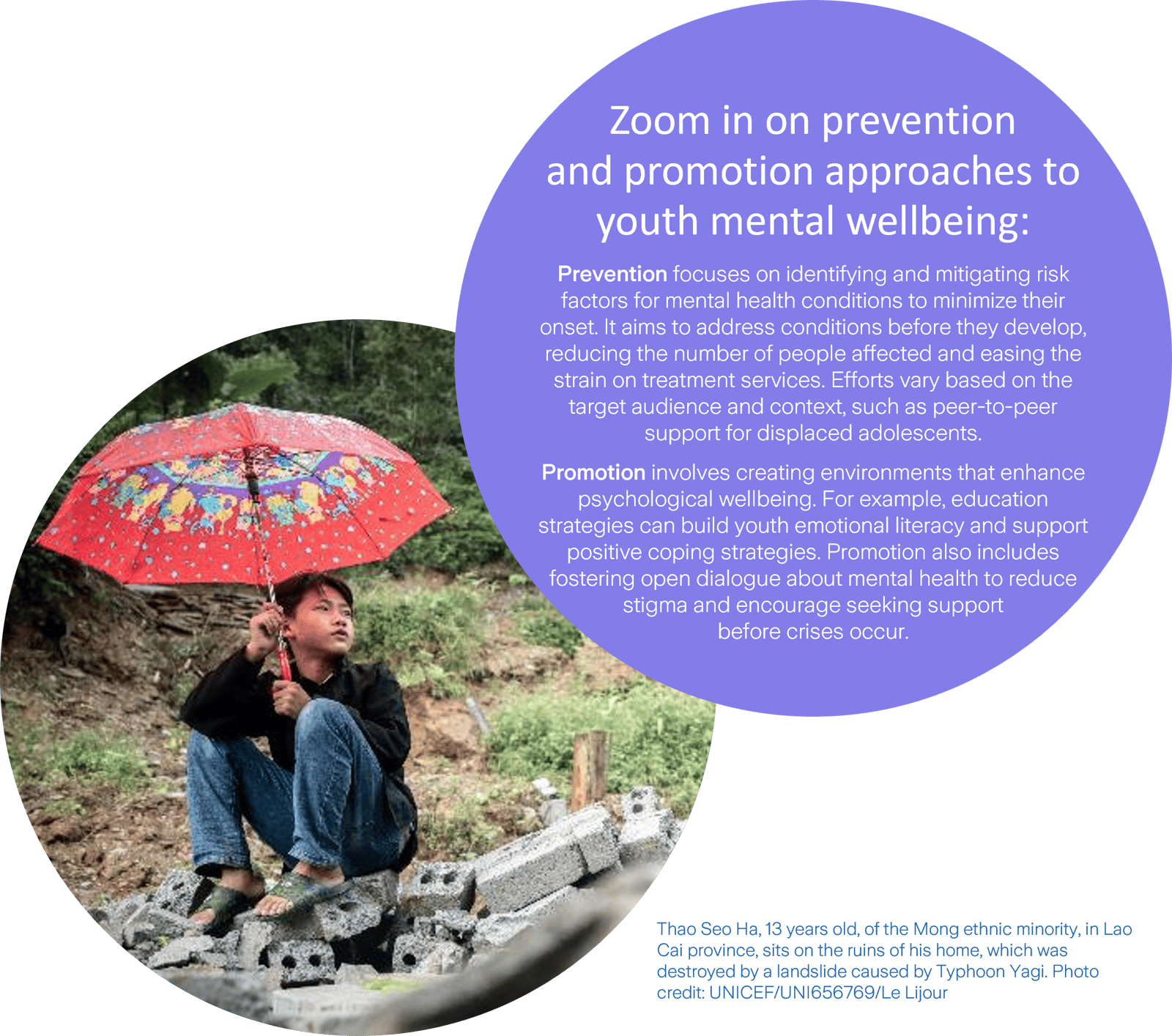
Training courses on MHPSS for teachers, delivered before the disaster, helped local communities respond more effectively to the mental health impacts of the typhoon. UNICEF’s assessment indicates that teachers, education managers, and children in Lao Cai have shown greater resilience compared to those in other provinces, due to the earlier training.
Being where it matters for young people
We are actively building a future where we address young people's needs in spaces they feel comfortable in and through relatable, trustworthy voices. This includes mental wellbeing initiatives, peer-to-peer, caregiver support, and teacher training, ensuring that young people receive the support they need now and in the future. The needs of young people range from mental wellbeing to education and employability, and the classroom presents a unique opportunity to deliver interventions with substantial impact and the capacity to establish ecosystems of support.
Promoting mental wellbeing in classrooms through role models
In 2024, the Tackle Your Feelings (TYF) Ireland program entered a new phase with the launch of the TYF Schools digital platform. TYF Schools is a classroom-based, teacher-led program designed to support youth mental wellbeing. Aimed at students aged 14 and over, it provides teachers with comprehensive lesson plans grounded in positive psychology and sport psychology principles. The content has been reviewed and approved by clinical and educational psychologists and is further enriched with personal insights from some of Ireland’s top rugby players, making it both relatable and inspiring for students. Upon completing the programme, schools also have the opportunity to host a TYF rugby player ambassador for a facilitated discussion on mental health and wellbeing.
The TYF Schools initiative, a joint initiative with Rugby Players Ireland and Zurich Ireland, aims to set a new standard for youth mental wellbeing by equipping students with practical tools for building resilience, emotional intelligence, and positive mental health. The program in schools builds on the success of earlier phases of the TYF program that features stories and support from top Irish rugby players, breaking down stigma and fostering a national conversation about mental wellbeing. The program's goal is to achieve at least 30% adoption in schools by 2027.
Discover the transformative power of sport in BBC StoryWorks’ Game On Series.
 TYF Ambassadors Calvin Nash & Christy Haney. Photo credit: Info Sports Photography
TYF Ambassadors Calvin Nash & Christy Haney. Photo credit: Info Sports Photography TYF Ambassadors Zac Ward & Beibhinn Parsons. Photo credit: Info Sports Photography
TYF Ambassadors Zac Ward & Beibhinn Parsons. Photo credit: Info Sports PhotographyOur commitment to young people includes being present in their lives and prioritizing mental wellbeing prevention. This approach empowers them to overcome challenges and thrive.

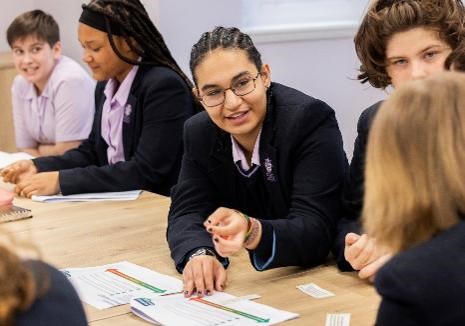
Seeing how beneficial the Autistic and OK program has been to the other autistic pupils at my school has been amazing. It has had a really positive impact on their experience of school, and on how they cope in their everyday lives.

Bridging critical gaps with communities of support from teachers, caregivers and peers
Everyone should be able to feel ok at school, but 4 out of 5 autistic young people experience mental health challenges. Together with Ambitious about Autism, we developed the Autistic and OK toolkit, a free resource offering vital support for autistic young people to take control of their mental wellbeing, understand themselves and feel ok. In just one year, the program has reached almost 1,000 schools and has already impacted more than half a million individuals across the UK.
The positive impact it is having on pupils across the UK speaks to the brilliant work of the autistic youth advisors from our Ambitious Youth Network who helped develop the program. We aim to reduce stigma about autism by involving teachers, careers, and peers in the school environment. By providing tailored mental health support and resources, the program fosters a supportive and inclusive environment where autistic young people can thrive and achieve their full potential.
Note: Collaboration between the Z Zurich Foundation, Zurich Employment Services Limited (Zurich UK), Zurich Community Trust (UK) Limited and Ambitious about Autism


